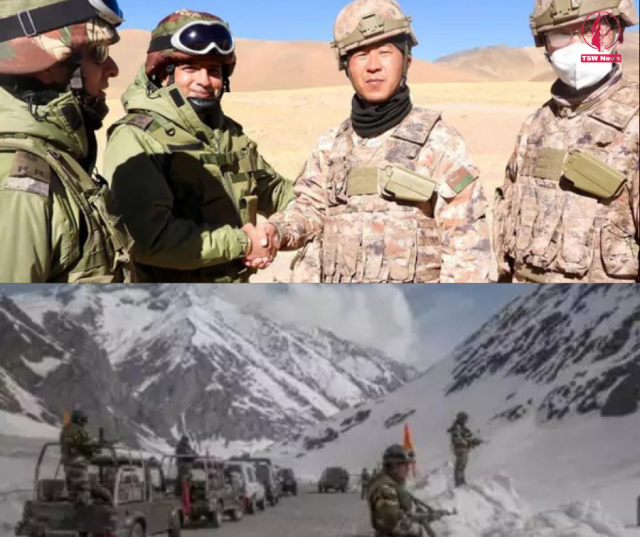Indian Troops Resume Patrolling in Ladakh’s Demchok Sector after Disengagement with China
- Posted on November 1, 2024
- News
- By Arijit Dutta
- 73 Views
Indian troops resumed patrolling in Ladakh’s Demchok sector after disengagement with China, with Depsang patrols expected soon. This follows a recent border agreement aimed at easing 2020’s standoff, as Indian and Chinese leaders seek to stabilize the LAC and pursue lasting peace in the region.

Indian troops have resumed patrolling in Ladakh’s Demchok sector following a recent disengagement agreement with China, according to Indian Army sources. This move marks a significant step in easing tensions along the Line of Actual Control (LAC), the contested border area between the two countries. Indian and Chinese troops are also expected to begin patrols in the Depsang Plains, another area of longstanding friction, in the coming days.
The disengagement efforts were part of a border agreement reached in October after high-level discussions between Indian Prime Minister Narendra Modi and Chinese President Xi Jinping at the BRICS summit. This agreement aimed to de-escalate the military standoff that has strained relations since 2020 when violent clashes resulted in the loss of 20 Indian soldiers and unconfirmed Chinese casualties.
On Diwali, troops from both countries exchanged sweets along the LAC as a symbolic gesture of goodwill, indicating warming relations and a desire to maintain peace at the border. Indian Defense Minister Rajnath Singh confirmed the progress of disengagement, noting that most friction points have now been resolved, although ongoing dialogue is required to fully stabilize the region. According to Singh, while disengagement marks substantial progress, the aim is to move beyond the establishment of buffer zones toward a more comprehensive peace agreement.
Also Read: Indian and Chinese Troops Celebrate Diwali with Sweets at LAC
China's defense ministry echoed this sentiment, with spokesperson Zhang Xiaogang affirming that frontline forces are following the terms of the agreement. However, both sides acknowledge that sustained diplomatic efforts are necessary to ensure long-term stability in the Ladakh region.




